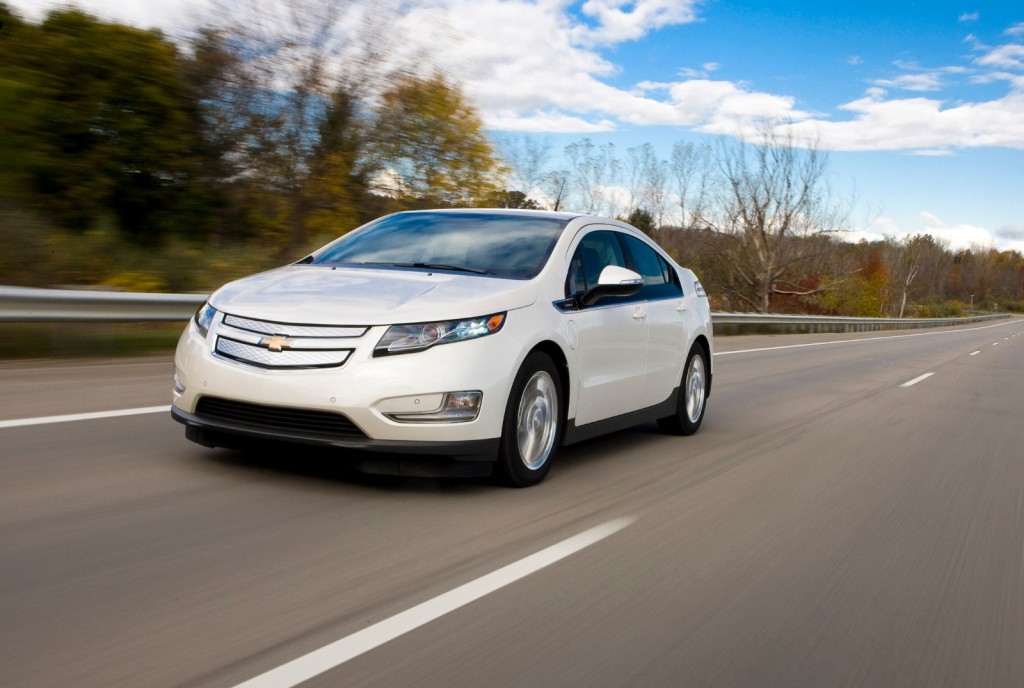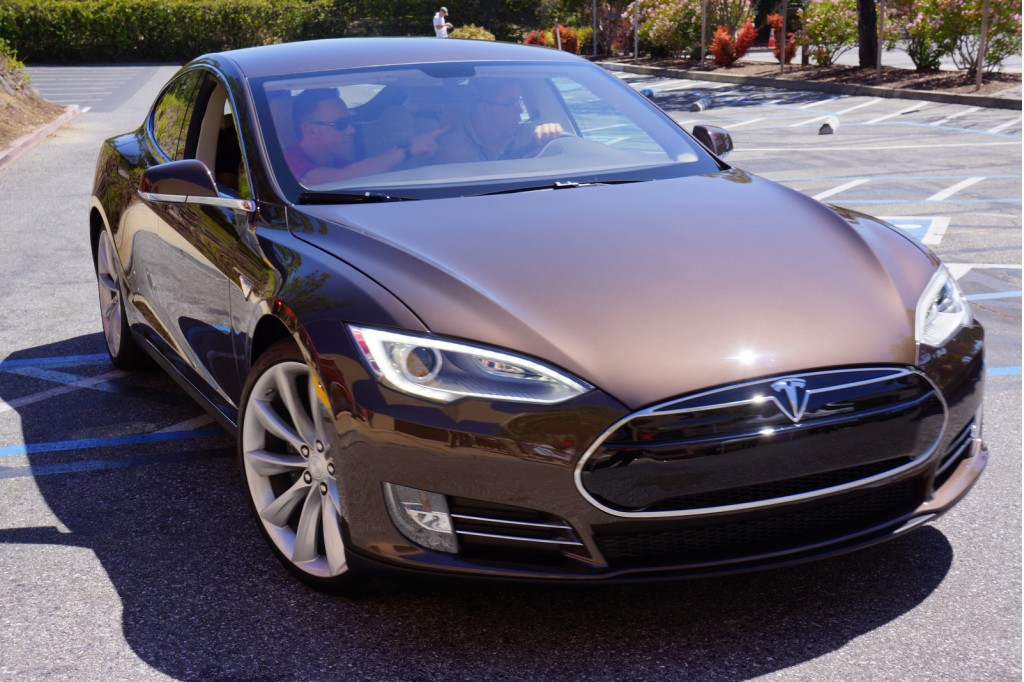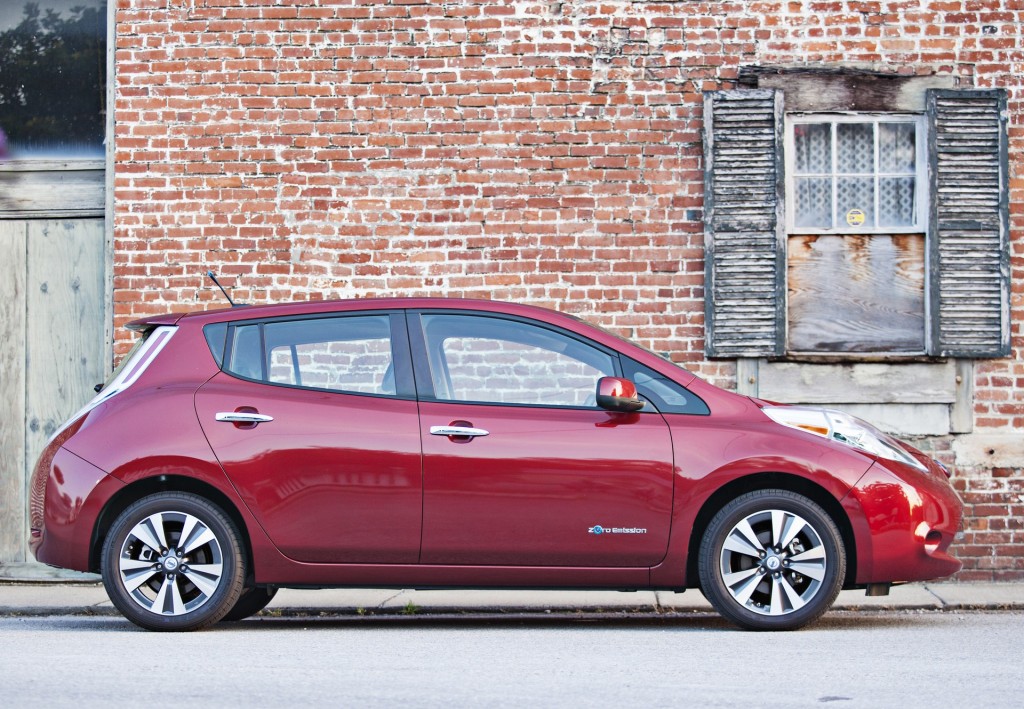
Fast Charging 2011 Nissan Leaf
Several states have adopted or proposed special taxes and fees for electric-car drivers. which are supposed to make up for lost revenue from taxes on the fuel their drivers don't buy.
Electric-car advocates typically view these policies as discriminatory, and claim they work against efforts to get more people into plug-ins.
MORE: Washington State's $100 Electric Car Tax: Cheaper Than Gas Car Tax
However, proponents claim electric-car taxes will help provide sorely-needed infrastructure funding. And it's hardly a secret that most state's highways could use the funds.
That's the argument made in a December 2014 article in Roll Call, whose author claims that these taxes suggest an alternative path to highway funding beyond the gas tax--which advances in fuel efficiency are rendering less lucrative.

2014 Chevrolet Volt
Five states--Colorado, Nebraska, North Carolina, Virginia, and Washington--have already instituted electric-car taxes, and they may soon be joined by Wisconsin.
[EDITOR'S NOTE: Since we published this article in late December 2014, Georgia too has added an electric-car registration fee of $200. See details below.]
[ADDITIONAL NOTE: Our reader John Weber points out that Idaho has also added a $140 annual fee for electric cars, as well as a $75 fee for hybrid vehicles, as of July 1, 2015. At the same time, the state raised its gasoline tax from $0.25 to $0.32 per gallon.]
In November, Wisconsin's Department of Transportation proposed a $50 annual registration fee for electric cars--on top of the standard fees paid by all motorists--which opponents say would penalize drivers for buying cleaner vehicles.
Yet Wisconsin electric-car drivers may still come out ahead. Here's why.
The state portion of the Wisconsin gas tax is 32.9 cents per gallon, so even drivers of a high gas-mileage car like the Toyota Prius hybrid--rated at 50 mpg combined--will pay just under $100 in fuel taxes each year, assuming the U.S. average of 15,000 miles driven.
RELATED: Wisconsin: Higher Taxes For Hybrids, Electrics For Not Burning Enough Gas To Fund Road Repairs?
The electric-car driver, meanwhile, simply pays the $50 fee. Drive that plug-in vehicle more than 15,000 miles, and the tax rate per mile decreases even further.
It's the same story in Washington state, which has a $100 electric-car registration fee, and a gas tax of 37.5 cents per gallon.
The difference is smaller, but the hypothetical Prius driver still pays more per year, at $112.50.
Washington also has a high percentage of electric cars on its roads. It's one of only three states with three or more electric cars per 1,000 vehicles registered.

Tesla Model S
Electric cars also come out ahead in Colorado, Nebraska, and North Carolina--the flat fee for electric cars adds up to less than the taxes on a year's worth of gasoline.
EDITOR'S NOTE: In December 2014, we wrote, "The only state where electric cars are taxed more than gasoline cars is Virginia, thanks to the combination of a low state gas tax--11.7 cents per gallon--and two extra fees for plug-in vehicles."
Fast Charging 2011 Nissan Leaf
"The state has a $64.00 annual alternative-fuel vehicle registration tax, and electric-car owners pay $50.00 fee on top of that. Electric-car drivers in Virginia pay $114.00 per year in fees, but would fork over just $35.10 in gas taxes for a 50-mpg car."
That alternative-fuel vehicle fee was removed for hybrid cars as of July 1, 2014, but the $64 fee remains in place for owners of battery-electric cars.
(The Virginia DMV site doesn't refer to an added $50 fee as far as we can tell.)
So electric-car owners in Virginia pay more tax than a Prius owner, although approximately the same amount as the average driver of a 25-mpg vehicle.

Georgia license plate
Then, in April, Georgia both killed its electric-car tax credit and imposed a $200 annual registration fee for battery-electric vehicles.
That's higher than the $165 in state gasoline taxes (at $0.275 per gallon) that a Georgia driver in a 25-mpg vehicle would pay for driving 15,000 miles per year.
As a result, Virginia is no longer the sole state where electric-car drivers may pay more in taxes than gasoline-car drivers. It has now been joined by Georgia.
ADDITIONAL NOTE: The annual fees imposed in Idaho as of July 1, 2015, require electric-car drivers to pay $140 per year.
Assuming 15,000 miles a year, drivers of a 50-mpg Toyota Prius will pay $171 ($96 in gas tax plus a $75 fee), and drivers of a 25-mpg car will pay $192 in gas taxes--so electric cars come out ahead in Idaho.
While annual fees may not be an ideal replacement for the gas tax, most electric-car drivers have thus far avoided paying higher taxes than their gasoline-driving counterparts.
CHECK OUT: Insult To Injury? GA Kills Electric-Car Incentive, Adds Last-Minute Luxury-Car Tax Break
Still, electric-car taxes present several problems.
For example, they don't account for out-of-state drivers--and it's eminently possible for states to boost plug-in taxes to exceed those paid by gasoline cars if legislators want to.
The situation becomes murkier when dealing with the most-efficient internal-combustion cars.
The proposed Wisconsin tax also applies to hybrids--which Virginia taxed until recently.
That penalizes drivers of fuel-sipping cars, who would have to pay an extra fee on top of the gas tax on the fuel they use.

2015 Nissan Leaf
As the average gas mileage of new vehicles sold continues to rise under more stringent CAFE standards, the calculus will inevitably change.
As more cars use less gasoline, drivers will pay less in taxes whether they plug in or not.
The Congressional Budget Office expects gas-tax revenue to plateau at $39 billion per year--while infrastructure costs continue to rise, leading to a $264 billion gap over the next decade.
That means electric cars are far from the only threat to the current model of highway-infrastructure funding. They're just visible to enough to be targeted.
_______________________________________________











